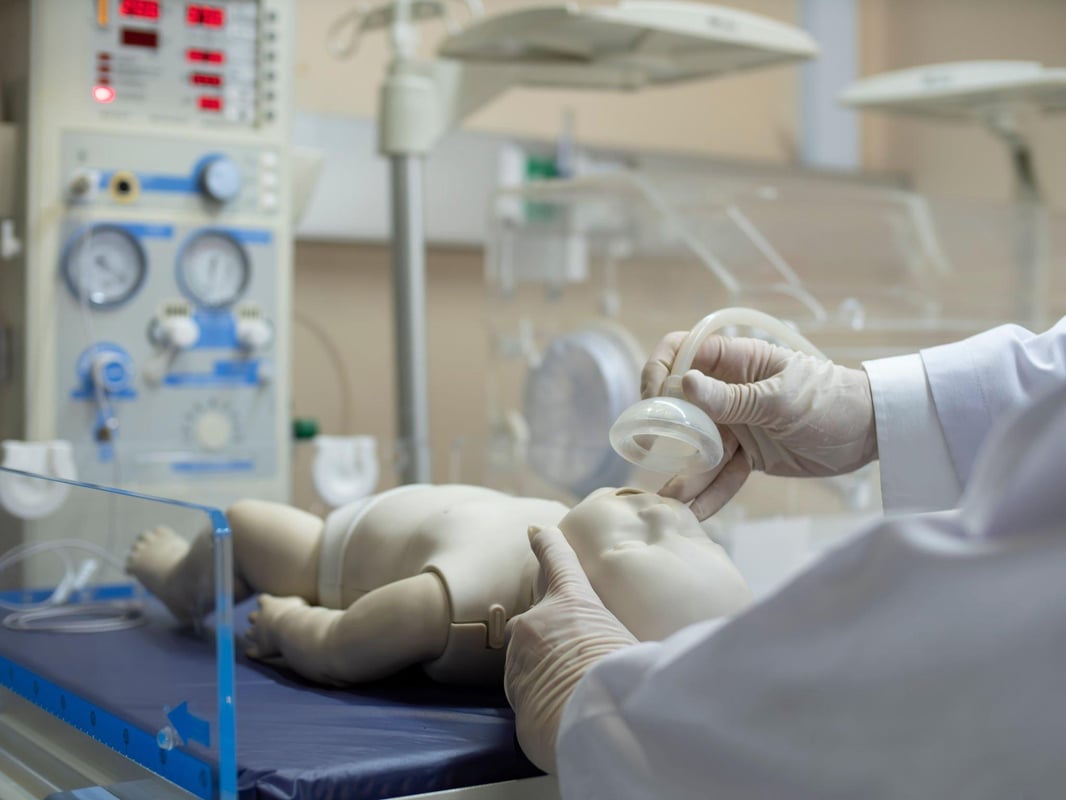No cost info
$149 total
$276 total
$2,075 total
$210 total
$150 total
No cost info
$285 total
No cost info
$150 total
As a workforce development specialist, we understand the importance of vocational training and how it can lead to life-changing career opportunities. One such vocational training that's gaining momentum in Chicago is Pediatric Advanced Life Support (PALS). This post will guide you through everything you need to know about PALS classes, how to find the right one for you in Chicago, and what to expect from these training programs.

Pediatric Advanced Life Support (PALS) is a training course designed for healthcare professionals who respond to emergencies in infants and children. It emphasizes the importance of basic life support (BLS) for patient survival, the integration of effective pediatric respiratory management, and the systematic approach to pediatric assessment.
Before enrolling in a PALS course, it's important to know the training requirements. Some of these include:
Previous Medical Training: PALS classes are advanced training courses. As such, they require previous medical training, such as a nursing degree or EMT certification.
BLS Certification: The American Heart Association (AHA) stipulates that all PALS participants must have a current BLS certification. BLS, or Basic Life Support, is a prerequisite for PALS because it provides the foundation for saving lives after cardiac arrest.
Finding the right PALS class can be a daunting task. Here are some factors to consider when choosing a class:
Accreditation: The class should be accredited by the AHA or a similar institution. This ensures that the course meets the necessary standards for PALS training.
Qualified Instructors: The instructors should be experienced and certified to teach PALS courses. They should be able to provide comprehensive, hands-on training.
Course Content: The course should cover all essential aspects of PALS, including airway management, vascular access, effective resuscitation, and team dynamics.
PALS classes are typically intensive and hands-on. Here's what you can expect from a typical class:
Lectures: These provide the theoretical background on pediatric advanced life support.
Practical Sessions: These involve hands-on training on pediatric resuscitation, airway management, and more.
Teamwork Exercises: These sessions aim to enhance teamwork and communication during pediatric emergencies.
After completion of the PALS course, you'll need to pass a written and practical exam to receive your certification. The practical exam involves a simulated pediatric emergency where you'll need to demonstrate the skills you've learned during the course. Remember, PALS certification is valid for two years, after which you'll need to take a recertification course.
After obtaining your PALS certification, you can seek employment in various healthcare settings like hospitals, clinics, and emergency medical services. You can find PALS-related jobs on various medical job portals in Illinois.
After becoming PALS certified, you might want to consider taking additional classes to broaden your skills. Some of these courses include:
Advanced Cardiac Life Support (ACLS): This course teaches healthcare professionals advanced skills in the treatment of cardiac arrest, stroke, and other life-threatening medical emergencies.
Emergency Medical Technician (EMT) Training: For those interested in pre-hospital emergency care, an EMT course can be a valuable addition to your PALS certification.
Hands-on training is a crucial component of PALS classes. It allows you to apply the theoretical knowledge gained in the classroom to real-life scenarios. This type of training helps develop confidence and competence, which are vital for handling pediatric emergencies.
Various factors affect the success rate in PALS certification. These include the quality of the course, the competence of the instructors, and the student's dedication and commitment.
Continuous practice is key in maintaining and enhancing your PALS skills. Regularly reviewing course materials and practicing techniques can help you stay prepared for real-life pediatric emergencies.
Pediatric Advanced Life Support (PALS) is a critical training for healthcare professionals dealing with pediatric emergencies. It equips you with the necessary skills to manage and respond to life-threatening situations involving infants and children. Whether you're a seasoned healthcare professional or just starting your career, a PALS certification can be a valuable addition to your credentials.
Finding the right PALS class in Chicago can be easier with platforms like Dreambound. Remember, Dreambound is not a school or an institute; it's a platform that helps students find vocational training programs. So, if you're looking PALS classes near you in Chicago, consider using Dreambound to make your search easier.
Dreambound has written dozens of in-depth guides on how to get started in this field, with information specific to your city. If you're located somewhere else or thinking about moving, check out some other guides we've written:
Exploring diverse professional options? Dreambound has comprehensive guides to assist you in making well-informed decisions. Take a look at these resources:
Dreambound's platform allows prospective students to find the right educational program for them through searching, filtering, and connecting with our extensive selection of career & technical education partners.
Dreambound has over 70 programs across healthcare, technology, business, and industrial trades. This includes programs such as Medical Billing, Cybersecurity, and welding.
Some of our schools offer financial aid for those who qualify. Many others offer payment plans, where you can pay the cost of class over time.
Yes, Dreambound offers many online programs. On Dreambound's search, you can filter by online, in-person, and hybrid (part online, part in-person).
Dreambound is completely free for you to use! We are supported by schools and organizations who pay to advertise on our website, so we can offer all of our career resources for free.